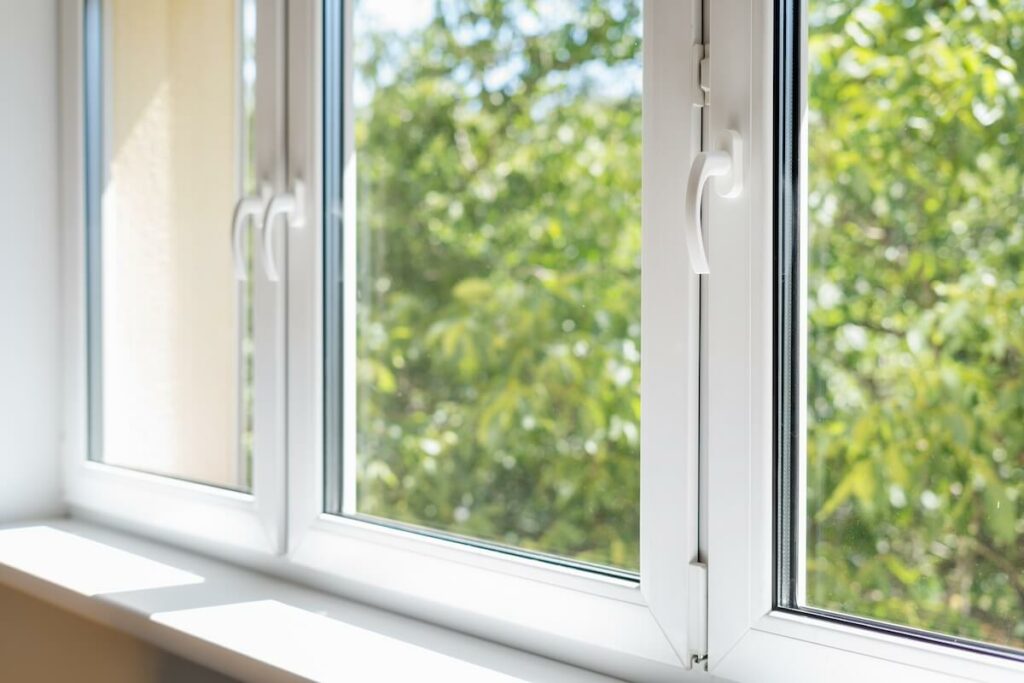Your home is your sanctuary. Your space away from the demands, stresses and unpleasantness of the world. Keeping it safe, secure and peaceful is important – but it isn’t always easy.
One of the most common intruders that can compromise your home is sound. From noisy neighbours to rushing traffic and even just the bustle of people passing by, keeping your home quiet can be challenging.
If you’re struggling with too much external noise invading your home, there are steps you can take. In this post, we’ll answer some commonly asked questions about soundproofing your home, before following up in our next post with practical steps you can take.
Does soundproofing really work?
Getting this big question out of the way first. For anyone seeking absolute silence, the unfortunate truth is that you can’t completely soundproof an entire house. If you live in a terrace or semi-detached house or in a busy urban area, you will never achieve full monastery-grade silence, however much work you do or money you spend.
However, it is possible to significantly reduce the noise that enters your home. You can take steps to limit the intrusion of external noise and noise from your neighbours. You just need to weigh up the cost versus the benefit and find the most effective ways for your home.
Can you soundproof an entire house?
The amount of noise you want to reduce is not the only thing that will impact how effective your soundproofing efforts are. The scale plays a part too.
Essentially, the bigger an area you want to soundproof, the more complicated things get. Even if you take every possible step in every single room, you’ll still see some noise get in and this will be amplified the more rooms you are trying to cover.
Instead, tackle the most important areas. For example, the areas of your house that get the most noise, or need to be quietest. A bedroom or office that faces onto the street might be a great place to start or a room attached to a separating between you and a particularly noisy neighbour.
If you want to soundproof your whole house, you’ll be looking at high costs. And, in most cases, there will still be some sound getting in – especially during summer when windows are opened etc. It is up to you to decide if it’s worth effort and investment, and what scale your soundproofing attempts should be.
How much does it cost to soundproof a whole house?
If you do decide to try and soundproof your whole house, you’ll be looking at a hefty price tag – at least £30,000 depending on the size of your home.
The techniques you use and the noise you’re trying to prevent will also have an impact. Neighbour noise can be cheaper to tackle as you’re looking at internal walls instead of external walls, whereas protecting against traffic noise may mean upgrading your window units and your doors which both can come with a high price tag.
How much does it cost to soundproof a room?
It is almost as hard to give a blanket estimate on the cost of soundproofing a room as it is on doing a whole house. The position of the room (whether it faces onto a busy street, for example, or whether you’ve got adjoining walls with a neighbour) will all affect how much noise you need to protect against. And of course, the more noise, the more expensive it will be to correct.
Depending on whether you’re just replacing your double glazing, fitting acoustic panels or insulation, or taking any number of other soundproofing, costs will mount up. Speaking to an expert and costing materials is the only way to get a real idea.
 What are the disadvantages of soundproofing?
What are the disadvantages of soundproofing?
Soundproofing a room might feel like a no-lose situation, as you capture more peace and quiet to enjoy. However, there are actually pretty significant disadvantages to consider too.
The first is ventilation. Keeping sound out usually means restricting its flow into the room – and in turn restricting the flow of air. One way around this is to take the time to ‘air’ your house at set points throughout the day by opening all your windows fully. This will allow fresh air in but can get awkward and time-consuming.
Reduced ventilation also has another drawback – an increase of moisture in the air. An increase in moisture indoors can quickly lead to damp problems and even black mould. As many insulating materials are absorbent by design, they can also develop mould themselves, hidden out of view while still having many potential health impacts.
Finally, another disadvantage we’ve already covered is the cost. Taking a full-on approach will usually be costly, and will rarely deliver full silence. If you’re looking to lower the noise that gets into your home, this is often worth it but be aware of the limitations of any work you do.
How long does soundproofing last?
Different types of soundproofing will have different lifespans. Double glazing lasts for around 20 years, but acoustic panels and other types of wall insulations may have shorter lifespans.
As with many things, the quality of the materials you use and how well they are fitted will dictate the lifespan of any soundproofing measures you take.
Do you need planning permission for soundproofing?
When it comes to fitting soundproofing to an existing home, you don’t need planning permission to make the majority of changes.
There are, as ever, exceptions to this rule, however. If you live in a conservation area, you may need planning permission to change your windows, front door, or make any other change that affects the exterior of your home. If you live in a listed building potential changes are even more restricted, so you should research the modifications you want to make before you start.
For new homes or extensions, there are building regulations around the soundproofing your building work must offer, however, these don’t apply if you are making improvements to your existing rooms.
 Will the council soundproof my house?
Will the council soundproof my house?
Even if you are struggling with loud noise and disturbances in your home, it is unlikely that the council will soundproof your house. They do not currently offer any grants or help in this area, so if you want to undertake the work, it will be at your own cost.
If you are struggling with neighbour noise they may be able to prevent the neighbours being so loud, but there will be conditions to be met and they will not fund changes to your own home.
Deciding whether to invest the time and effort soundproofing your home can be difficult. Hopefully, with the above questions answered you will feel better equipped to decide yourself.
If you do want to try and keep street noise out of your home by replacing your windows with new double-glazed units, you can speak to our team today to find out more.

